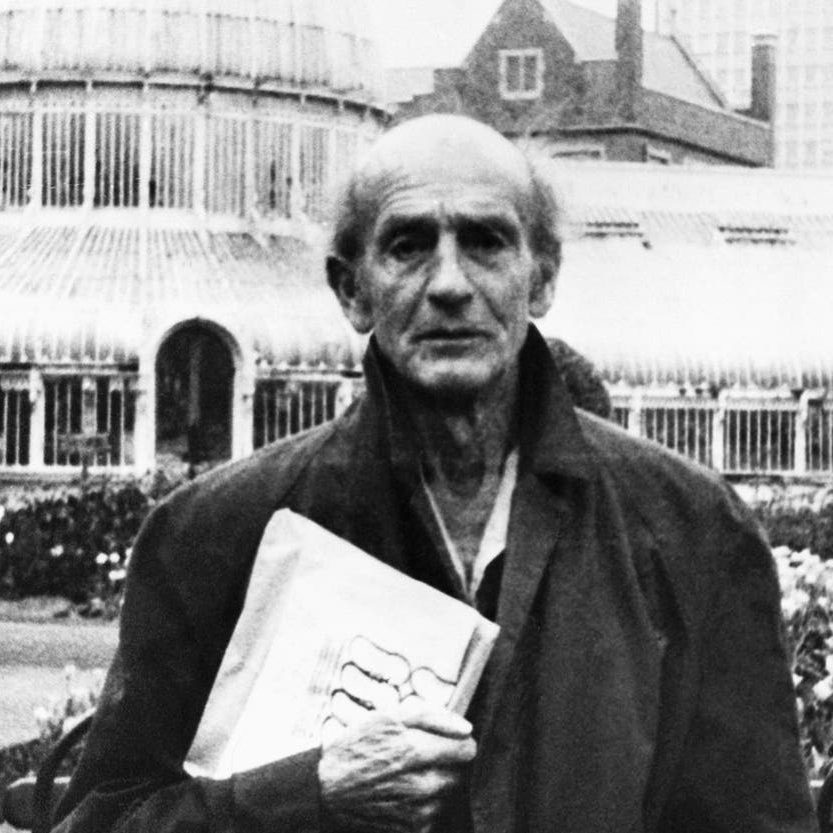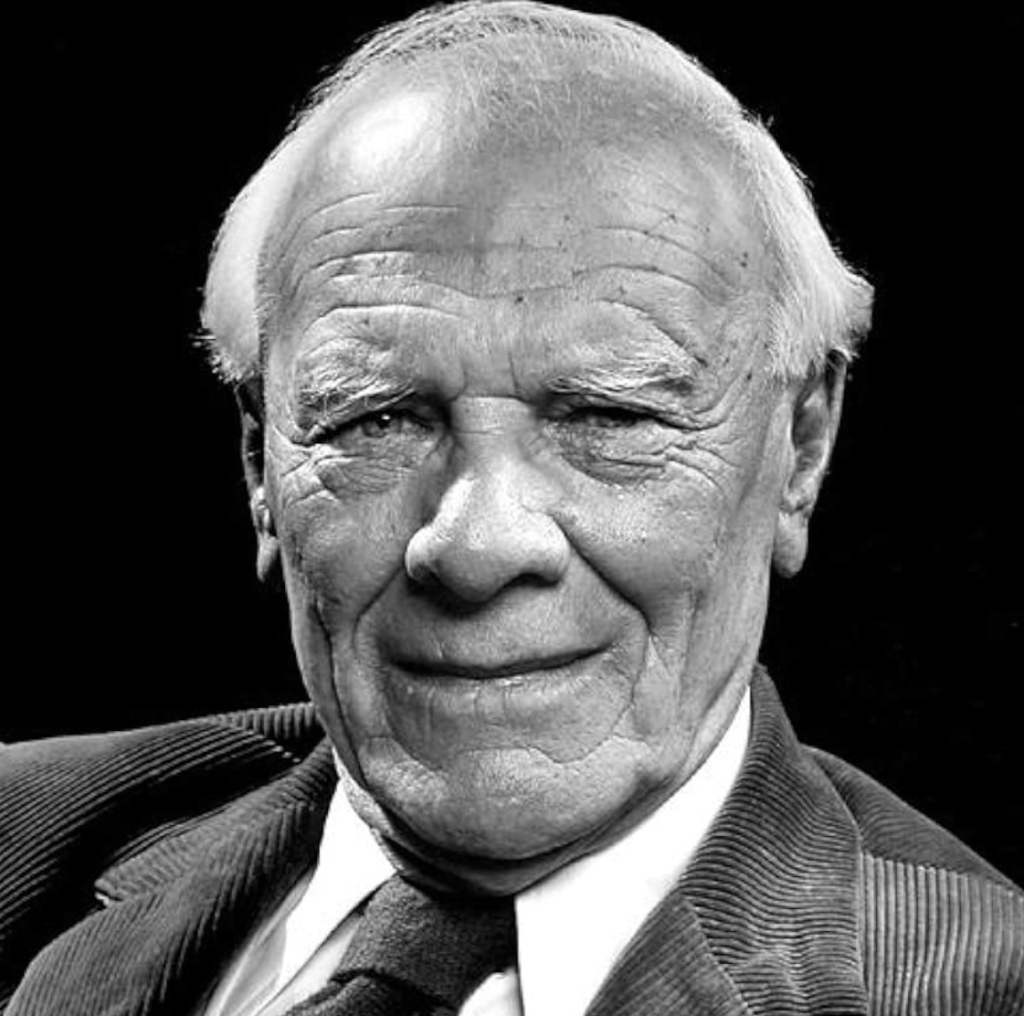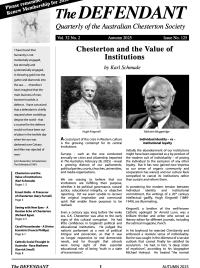

A crucial part of the crisis in Western culture is the growing contempt for its central institutions.
Surveys – such as the one conducted annually on civics and citizenship (reported in The Australian, February 28, 2025) – reveal a growing distrust of our parliaments, political parties, courts, churches, universities, and media organisations.
We are ceasing to believe that our institutions are fulfilling their purpose, whether it be political governance, natural justice, educational integrity, or objective reporting. Yet we seem unable to recover the original inspiration and communal spirit that enable these purposes to be realised.
Even a century ago, long before the woke era, G.K. Chesterton was alive to the early signs of this cultural corruption. He had little confidence in England’s political and educational institutions. He judged the nation’s parliament as a nest of political intrigue and perversion, so that it was no longer responsive to real democratic needs, and he thought that schools were losing sight of their essential educational role of being “truth in a state of transmission”.
Individual identity – vs – institutional loyalty
Initially the abandonment of our institutions might have been expected as a by-product of the modern cult of individuality – of prizing the individual to the exclusion of any other loyalty. But it has now gained new impetus as our sense of organic community and cooperation has waned, and our culture feels compelled to cancel its institutions rather than sustain and reform them.
In pondering the modern tension between individual identity and institutional commitment, the writings of a 20th century intellectual gadfly, Hugh Kingsmill (1889- 1949), are illuminating.
Kingsmill, a brother of the well-known Catholic apologist Sir Arnold Lunn, was a
brilliant thinker and writer who served as literary editor for different journals, including the satirical magazine, Punch.
In his boyhood he rejected Christianity and embraced a resolute sense of individuality. But he was caught in the dilemma of a secular outlook that cannot finally be satisfied by secularism. He had, in fact, “a deep strain of mysticism”, according to his biographer Michael Holroyd. He treated “the normal sights of this world, of nature . . . as symbols of some other life.” (The Best of Hugh Kingsmill, 1970)
One of his closest friends was Malcolm Muggeridge. Describing himself as “among the walking-wounded fromthe ideological conflic ts of the age”, Muggeridge found in Kingsmill “the perfect physician”, for “he managed to remain uncontaminated and unbrainwashed in an age that specialised in both processes.” (Chronicles of Wasted Time, Vol. 2, 1973)
This was shown above all in Kingsmill’s ingrained resistance to any kind of secular substitutes for religion. He thought they held out the promise of an earthly paradise that could never be realised. As he once wrote:
What is divine in man is elusive and impalpable, and he is easily tempted to embody it in a concrete form – a church, a country, a social system, a leader – so that he may realise it with less effort and serve it with more profit. Yet, as even [Abraham] Lincoln proved, the attempt to externalise the kingdom of heaven in a temporal shape must end in disaster. It cannot be created by charters and constitutions nor established by arms. Those who set out for it alone will reach it together, and those who seek it in company will perish by themselves.
This was a salutary warning on Kingsmill’s part against the proneness for utopian solutions. In his own lifetime he witnessed the seductive power of the secular substitutes of Communism and Nazism, and the resultant horrors they inflicted on millions of people.
But his aversion to the embodiment of belief in institutional form leaves individual identity in a vacuum, isolated from a human being’s spiritual and cultural roots. Human nature is communal, not just individual, and it is institutions that give communal meaning to our individual lives, starting in the family and spreading out to other social and political institutions.
In one essay, Kingsmill interpreted the course of Chesterton’s spiritual understanding (which culminated in his conversion to Catholicism in 1922) as representing loss rather than gain:
Religion in [his early] years still meant more to Chesterton than creeds and institutions.
Yet what Kingsmill spurned as a false step, Chesterton saw as a fulfilment of faith. Creeds and institutions are the ways in which the supernatural finds expression in human life and gains access to the human mind and heart. They are the incarnational reality of the Church -what Chesterton called The Thing (the simple title of his 1929 book of apologetical essays).
“How natural,” Chesterton noted, “is the craving for the supernatural.” He opposed the idea that “worship shall be wholly spiritual, or even wholly intellectual,” and argued there should be no feeling of “disgust at the idea of spiritual things having a body and a solid form.” (The Thing, 1929)
To be anti-institutional is to overlook a fundamental human part of our nature – that we rely on institutions to give body to our spirit and soul. They store our historical memories and traditions, and make them part of our daily experience to deepen the meaning and hope of our lives.
When we express these meanings and hopes in a religious doctrine, we connect our earthly experience and supernatural destiny in a concrete way. Thus the belief in the Communion of Saints, affirmed in the Apostles’ Creed, captures the spiritual solidarity that the faithful on earth share with those who have gone before them and are now in heaven or purgatory. It is an expression of human unity that transcends death.
Naming of children after saints
A popular expression of this spiritual communion, in a custom that has now largely lapsed, was the naming of children at their baptism after saints. This united each child spiritually with a particular man or woman who had been recognised for a life of heroic goodness. It lifted the significance of a bestowed name above the level of parental choice, imparting it with a higher meaning and inspirational quality. It created a personal relationship beyond this life with a patron saint to whom the child could pray for intercessory help and support.
Such a simple custom signified the value of an institutional heritage. It elevates an individual’s identity rather than diminishing it. And it testifies to the nature of the relationship that ordinary people have felt with the Church throughout the centuries. In the words of the historian Christopher Dawson:
The men of power and the men of learning have quarrelled with the Church, but the little men and women of all ages have made it their home. For the relationship of the individual Christian to the Church is never external or legalistic: every Christian has a direct access to the heart of the mystery, and his importance does not depend on his social or ecclesiastical position but on his personal participation in the life of the spirit by which the Church is animated.
The Formation of Christendom, 1967
